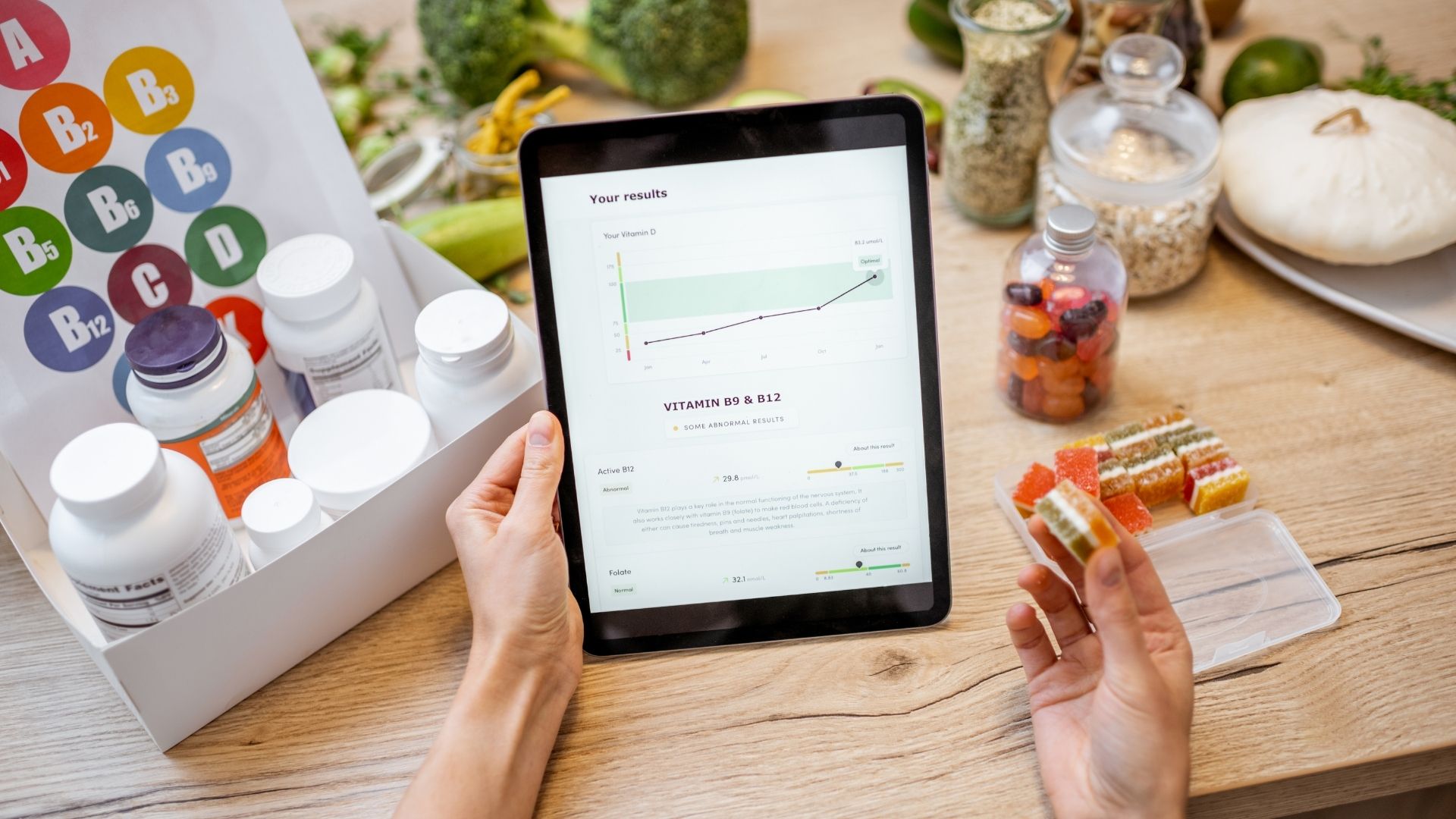Which Vitamins & Minerals Take a Hit When Stress is High?
Stress is an inevitable part of life. Whether it’s work-related pressure, personal challenges, or global events, stress affects each of us in different ways. While most of us are familiar with the immediate effects of stress—like headaches, fatigue, and irritability—its impact goes much deeper. One of the less talked about but equally critical effects of stress is its ability to deplete essential vitamins and minerals from our bodies.
When we’re under constant stress, our body’s nutritional needs change. It becomes more challenging to maintain optimal levels of certain nutrients, which can further exacerbate the negative effects of stress on your health. Understanding this connection is crucial for anyone looking to maintain their well-being under stressful conditions.
The Impact of Stress on Key Nutrients
Stress can change the way your body uses many different vitamins and minerals. Here are a few that experience the greatest impact during chronic stress (1):
Vitamin C
Vitamin C is a powerful antioxidant that helps combat oxidative stress. It also plays a crucial role in immune function and skin health.
What happens to vitamin C during stress: The body’s demand for Vitamin C increases significantly. Chronic stress can lead to depleted Vitamin C levels, which is one reason why stress increases susceptibility to illness. Stress can even deplete levels of vitamin C in the skin, leading to signs of premature aging like thinning skin and fine lines (2).
Increase Intake of Vitamin C: Include more citrus fruits, strawberries, bell peppers, and broccoli in your diet.
B Vitamins
B vitamins, including B1 (thiamine), B2 (riboflavin), B3 (niacin), B6 (pyridoxine), B9 (folate), and B12 (cobalamin), are vital for energy production, brain function, and the synthesis of neurotransmitters.
What happens to B vitamins during stress: Stress can increase the metabolism of these vitamins, leading to deficiencies that may manifest as fatigue, depression, and brain fog.
Boost B Vitamins: Consume whole grains, meat, eggs, dairy products, legumes, seeds, and nuts.
Vitamin D
Vitamin D is essential for bone health, immune function, and mental well-being.
What happens to vitamin D during stress: Stress can affect the body’s ability to convert sunlight into Vitamin D, and chronic stress has been linked to lower levels (3). A deficiency in Vitamin D can lead to compromised immune function, hormone imbalance, and mood disorders.
Enhance Vitamin D Levels: Spend time in sunlight, eat fatty fish, fortified dairy products, and consider supplements if necessary.
Stress Causes Problems with Minerals, Too
Magnesium
Magnesium is involved in over 300 biochemical reactions in the body, including muscle and nerve function, blood sugar control, and energy production.
What happens to magnesium during stress: Stress causes the body to excrete more magnesium through urine, which can lead to reduced availability of magnesium for the body (4). Less magnesium can also make you more susceptible to the effects of stress, creating a vicious circle of high stress & magnesium deficiency (5). Symptoms of magnesium deficiency include muscle cramps, fatigue, and anxiety.
Magnesium-Rich Foods: Add more leafy green vegetables, nuts, seeds, and whole grains to your meals.
Zinc
Zinc is crucial for immune function, tissue & skin repair, and DNA synthesis.
What happens to zinc during stress: Like magnesium, zinc levels can be depleted by stress. A deficiency in zinc can compromise the immune system, making the body more susceptible to infections, and can negatively impact mood and cognitive health.
Zinc Sources: Incorporate meat, shellfish, legumes, seeds, nuts, and dairy into your diet.
Identifying Your Nutrient Needs

If you’d like to find out your nutrient status, work with a holistic practitioner to perform nutrient deficiency testing. Your provider can help you interpret your results and make targeted changes to your diet, supplement routine, or lifestyle.
What can you do if you’re under high stress and want to protect yourself from nutrient deficiencies? First, you’ll want to make sure you have a way to replenish these nutrients, then it’s crucial to employ stress management techniques that work for you.
Read: Rules for Choosing the Right Supplement
Strategies for Replenishing Nutrients During Stress
Stressful events are a fact of life, but nutrient depletion doesn’t have to be. Here’s what you can do to optimize your nutrient intake and support your well-being during stressful times:
- Focus on nutrient-dense foods: During periods of stress, it’s essential to make sure you’re getting enough vitamins and minerals through your diet. Focus on whole, unprocessed foods like fruits, vegetables, lean proteins, and healthy fats. These foods are rich in key nutrients that can help protect against the negative effects of stress.
- Consider supplementation: If you struggle to get enough nutrients through your diet or have known deficiencies, supplements may be helpful.
- Practice stress management techniques: Finding ways to manage and reduce stress is crucial for maintaining optimal health during challenging times. Some effective strategies include regular exercise, meditation, deep breathing, and spending time in nature.
Listen: Dr. Taz’s Take on Top-Ranked Diets
The Importance of Self-Care During Stressful Times
In addition to addressing nutrient depletion and stress management, don’t underestimate the power of self-care. Self-care plays a crucial role in supporting our well-being during stressful times. It can help reduce the negative effects of stress on our bodies and minds while promoting overall resilience. For example:
- Exercise Regularly: Physical activity can reduce stress and improve nutrient absorption.
- Practice Mindfulness and Relaxation Techniques: Activities like yoga, meditation, and deep-breathing exercises can lower stress levels.
- Prioritize Sleep: Aim for 7-9 hours of quality sleep per night to aid in nutrient recovery and overall health.
- Stay Hydrated: Proper hydration is essential for nutrient transport and utilization in the body.
While it may seem counterintuitive to prioritize self-care during periods of high stress, it’s essential for maintaining balance and preventing burnout.
It’s important to remember that everyone experiences stress differently, and what works for one person may not work for another. It’s essential to find the strategies and activities that resonate with you and stick to them consistently.
Read: Ayurvedic Practices for Your Routine
The Takeaway
Stress is more than just a mental burden; it’s a physical one that can deplete essential vitamins and minerals from our bodies. By understanding the relationship between stress and nutrient depletion, we can take proactive steps to replenish our bodies with the nutrients they need.
Prioritize a balanced diet, consider supplementation, and incorporate lifestyle changes to combat the effects of stress. Remember, self-care isn’t a luxury—it’s a necessity. For those feeling overwhelmed by stress and its impact on health, seeking professional advice can provide tailored solutions and support.
Investing in your health today will pay off immensely in the long run. Stay mindful, stay nourished, and take control of your well-being.


